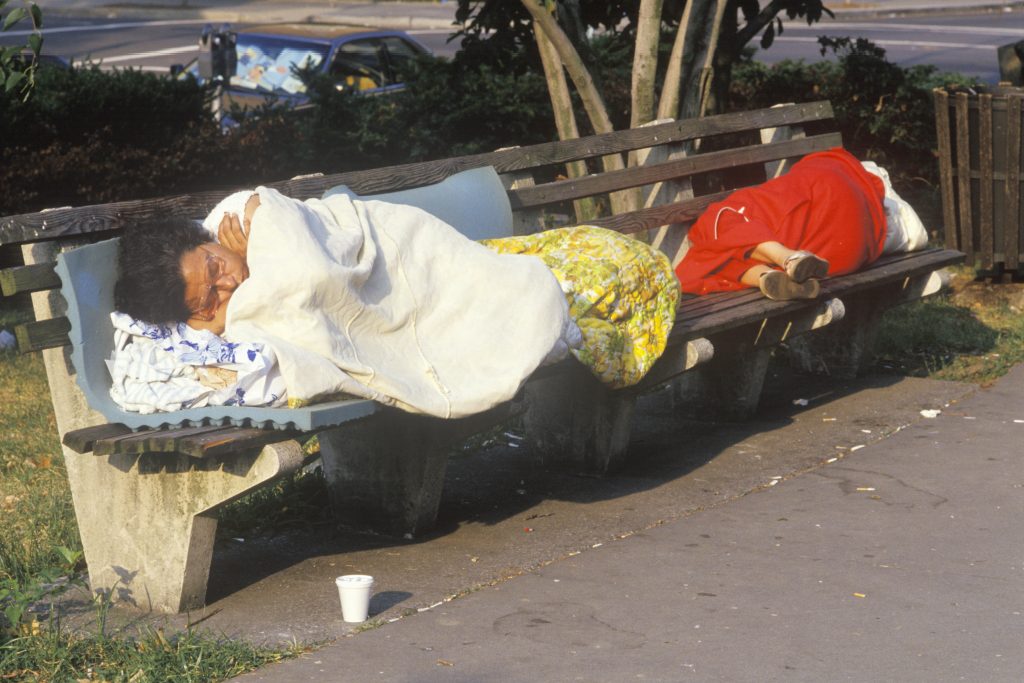People experiencing homelessness without restroom access
There are inadequate toilet and shower facilities for people unable to use indoor shelter facilities. Some citizens advocate for the removal of tent cities or transitional-living areas (e.g. tiny-homes) where these facilities could be constructed. Open urination and defecation is criminalized across America, further exacerbating the situation.
WHO?
Statistics on the number of homeless people in the United States are difficult to ascertain due to the nature of collecting data on people who are living outside in hidden places, but a minimum of 580,000 Americans “slept rough” outside in 2020. Homeless people already carry a high health burden with limited medical insurance and access to preventative care. Women are even more vulnerable and suffer from greater amounts of harassment and violence.
HOW?
Sleeping rough means sleeping outside on the streets or in parks, squatting in buildings, or staying in group camps. All of these places do not have sanitation facilities. Lack of access to toilets means homeless are forced to practice open urination and defecation, which presents health hazards and social stigmas. These individuals use the few public toilets that exist, frequenting hygiene facilities provided by local churches or NGOs, or, more rarely, constructing their own on-site sanitation systems (i.e. the two-bucket system or the tippy tap sink). Open urination and defecation is criminalized across America further exacerbating the situation.
WHY?
Homeless shelters with sanitation facilities are difficult to access for many living outside. Unhoused people avoid shelters for reasons including religious requirements, finances, crime, crowding, limited space, limited privacy, violence, health concerns, or an inability to stay with partners. The era of Covid-19 made shelters even more difficult to find. Often people choose to stay in group camps outside for safety, but these camps are not always legal or regulated. Neighborhood dwellers often advocate for the forced removal of these camps. Regardless of their legal status, most group camps have poor water and sanitation systems.14
Subscribe to our newsletter!

